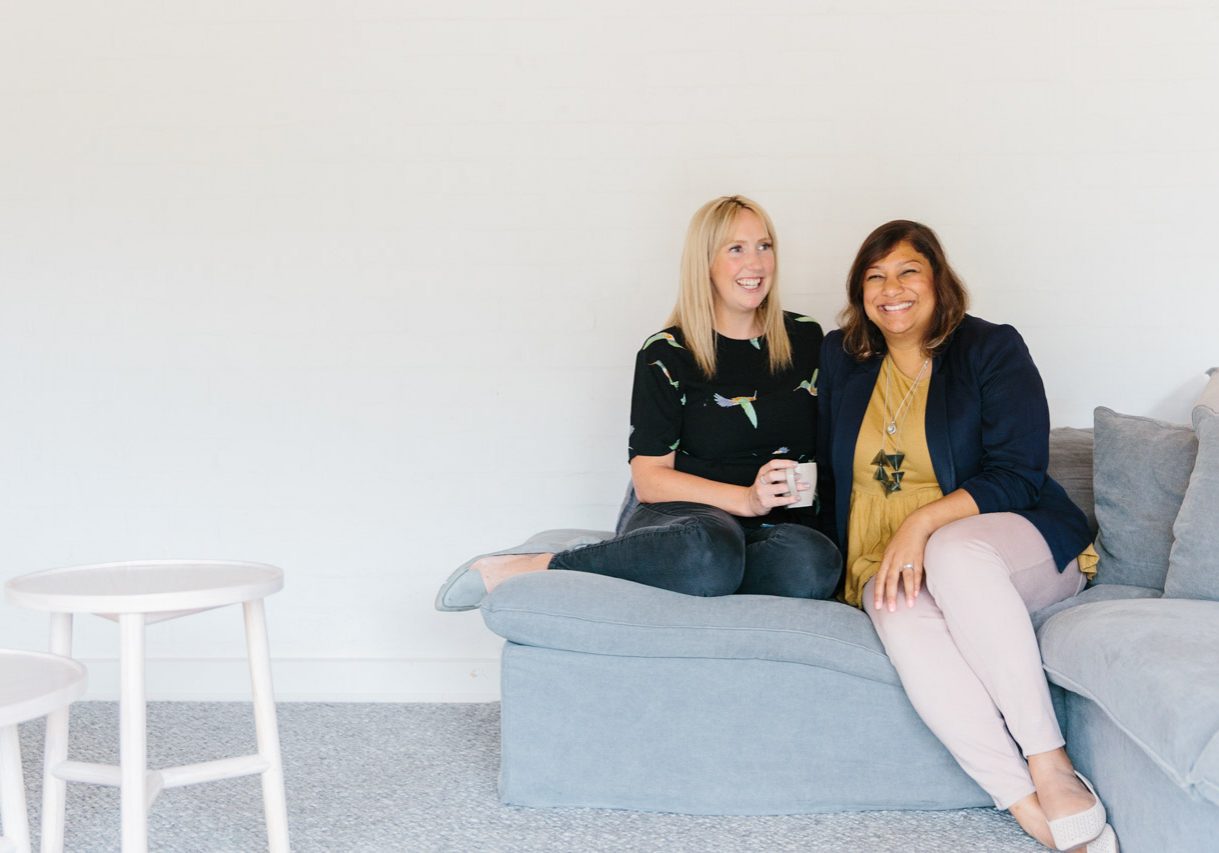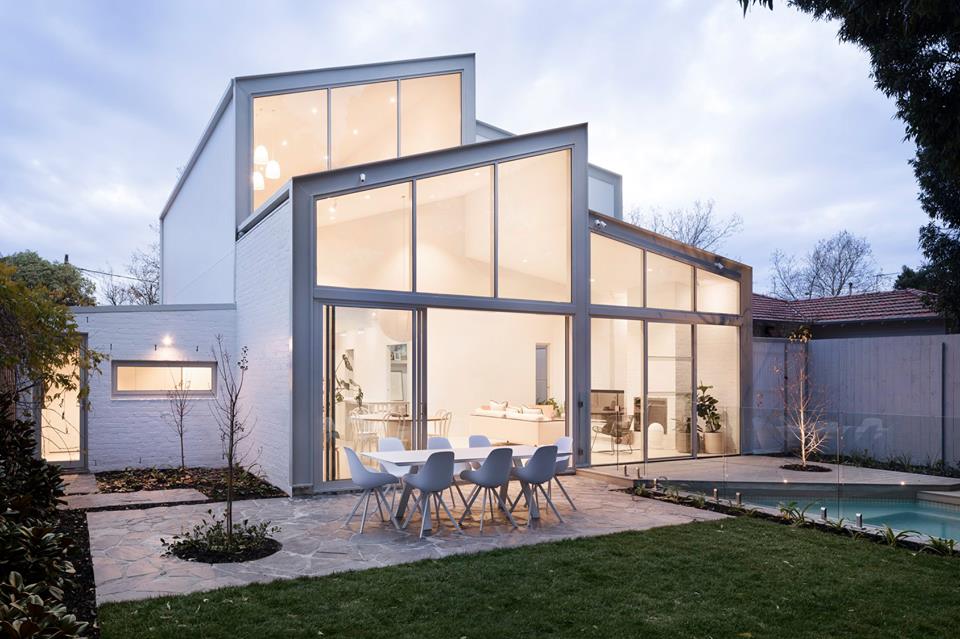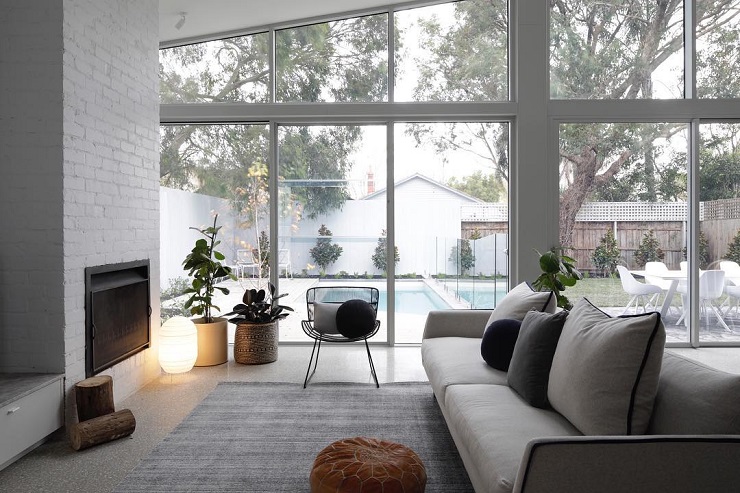BuildHer Collective co-founder shares how their company empowers women
Melbourne-based BuildHer Collective is empowering a growing community of women to take control of their building and design needs. Co-founder and director Rebeka Morgan reveals how it began and where it is heading

Before a recent cut in interest rates, the cost of buying a home in Australia has been steadily declining the last few years, dropping at an average of 4.8 percent in 2018 countrywide, with some areas reaching price levels of a decade ago. Such were the circumstances in September 2017, when entrepreneurs Rebeka Morgan and Kribashini Hannon chose to step in to this auspicious market. Harnessing the power of the internet, Morgan and Hannon joined forces to create BuildHer Collective, a support platform for homeowners with questions or concerns—one targeted directly at the fairer sex.
Between them, Morgan and Hannon made something of a dream team when it came to experience and skills in the building industry. Having started in her family’s floor-coverings business as a teenager, Morgan became a registered builder and spent 14 years in commercial construction before redeveloping residential properties and lecturing part-time at Melbourne’s Swinburne University. Hannon grew up to a glass manufacturing business in New Zealand’s capital Wellington, eventually turning her hand to project management, with a focus on builders and contracts.
BuildHer Collective is a community in which, through online courses, webinars and workshops, the dynamic duo are passing on their considerable expertise to women renovators. The aim is to demystify the process for those desiring to refurbish their homes—particularly first-home owners—but are unsure which path to follow. Other activities include hands-on experience in the form of the DevelopHers Inner Circle, which Morgan describes as “a look behind the scenes—the tips, the tricks, the information and processes—and at other people developing for profit. This is a community of women who are supporting and helping each other get ahead with their dream renovations in a really value-adding way.”
With Hannon enjoying maternity leave after giving birth to a boy in August, Property Report hears from Morgan on the inner workings of their start-up which, in just two years, has accrued more than 16,000 Facebook followers and a string of glowing testimonials from home-owners in Australia.

What led you to pursue this path in consultancy?
I have a background in commercial construction, but it wasn’t a great fit for family life. I left after my boss very kindly pointed out I should have a househusband for the kids. I started another business with my husband where we were renovating houses on the side. Because we were doing it in an area interested in housing, I was getting a lot of questions and spending a lot of time jumping into other people’s problems. That’s really what started us branching out into consultancy.
Your company specialises in helping women develop their ideal homes. Why did you choose women as your target clientele?
To a large extent, women are the people who organise the home. They spend the most time in the home, statistically speaking—they look after the children and get more house pride than a man who goes to work and gets validation there. They’re more invested.
While it does happen in consultation with their partners, what we are finding with our demographic is that the woman organises the build. However, the builders are wanting to speak with the man because they’re meant to know how to build. And that’s just not the case. If the woman is at home and has more time or capacity or desire to organise the build, they’re the ones getting quotes from the architect and looking at all the plans to put stuff together.
More: Meet the 6 powerful women who gave the real estate industry a much needed facelift
BuildHer Collective began two years ago but has already garnered a great deal of support. Can you tell us how you promote the company and why you think it’s been so successful?
What has resonated with people is that we’re really inclusive: we tell our story and how we feel about things. I have a house on the market at the moment, and it’s an emotional process. It’s never going to be, “Oh, that was super-easy, and I wasn’t worried at all.” Of course, we’re worried, because we’re invested in our homes. We create the best products we can, show people the process and the outcome, and take a lot of pride in our work. We love speaking to people—we have 20-minute consultations with people who ring us up and have a chat with us.
It’s also an interiors industry, so Instagram is our biggest platform. People look all the time at our imagery, so we do a lot of work around creating the best imagery on our listed houses. Instead of 12 photos you’d normally get for a real-estate campaign, we get 60 and we’re very good at tagging people in and acknowledging those who helped us in getting there, because it is a relationship game. We added it up, and we worked out that it takes well over 100 people who are invested in your project and helping you create a great outcome.
The high point is that we have this amazing community of hundreds of women who are helping each other. Honestly, we expected we would be jumping into the forums and answer their questions. But often, the questions have already been answered by other BuildHers in the community
What is it about BuildHer Collective that marks you out as unique?
I take more the builder’s side, and there are so many different paths you can go down—one of which is building for yourself, which is what I specialise in. Kribashini is a commercial project manager who is used to managing builders, outcomes and contracts. Because we don’t always agree and come at things from different perspectives, we’re able to give that holistic outcome—and there will be people who will resonate more with what I do, and those who resonate more with Kribashini.
Can you reveal some of the challenges that you have faced while building the company?
Both of us had a baby during the time we were building the business. Kribashini left her job where she was managing an AUD80 million project, so we’ve really just had this year to work together. I also run another business in building and developing. We’ve both got a lot of balls in the air and different caps to wear. One of the biggest challenges we’ve had is that sometimes it could take weeks before we could sit down and have a meeting. So, it’s managing time, family and work commitments, but to be honest that’s kind of why it works: because we’re real. We work a three-day week, Wednesday to Friday. It’s a business built around family, and your home is built around family.
More: Influential and inspirational: women in power shine at the 2019 Asia Real Estate Summit
What has been your high point so far? Your breakthrough moment?
The high point is that we have this amazing community of hundreds of women who are helping each other. Honestly we expected we would be jumping into the forums and answer their questions. But often the questions—such as “This tiler has tiled something and it doesn’t look right…should I check it?” and “The floor isn’t level; the builder has suggested this. What should I do?”—have already been answered by other BuildHers in the community who have great suggestions. There are design issues, lighting issues, all sorts of things, but because you’ve got this breadth of knowledge from people who are interested and passionate about it, the answers are amazing.

You are also the CEO for Beirin Projects, a high-end renovation/construction outfit, and have taught at university. Does the success of BuildHer Collective mean you have to cut back on some of your other work, or do you manage to successfully juggle all these commitments?
Beirin Projects builds the homes that we use to teach people how to develop, and it’s an amazing masterclass of amazing women. So, we juggle all the commitments by having them come back and forth—they’re symbiotic and leverage each other, so I can be working on one or the other, but really, I’m working on all of them at the same time. Unfortunately being a university tutor had to go—I stopped doing that last year.
Much of your work is conducted online through webinars, and your website really is impressive. Did you learn your tech skills earlier in your career, or is this something you’ve had to hone more recently?
We love the technical side, but the webinars are not our friend! We’ve had many, many webinar failures: but we are persistent and resilient, if nothing else.
We should have tech skills, we are really, really trying! [laughs] We do our best. Kribashini is really good at detail, so her managing the tech this year has been amazing, because she is really good at understanding the way things go together. We have a great tech team that we’ve outsourced to help us, because you can’t know everything and be amazing at everything.
Last November 2019, Hannon and Morgan were gracious enough to share their insights at the PropertyGuru Asia Real Estate Summit held in Bangkok, Thailand, where they respectively spoke about the importance of tech education with the youth and the effectiveness of digital storytelling.
This article originally appeared in Issue No. 157 of PropertyGuru Property Report Magazine
Recommended
Why everyone is moving to Selangor and Johor: Malaysia’s real estate comeback
Malaysia’s upturn in fortunes is especially prevalent in secondary destinations such as Selangor and Johor
Penang’s silicon boom: How the US-China tech war is supercharging local real estate
Penang’s booming semiconductor industry has created ripples within the local real estate sector
New leader, new opportunities: How Hun Manet is shaking up Cambodia’s real estate game
Hun Manet is overseeing decent economic growth and widening access to the country’s real estate market for foreigners
Singapore embraces inclusive housing reforms amid resilient demand
The Lion City’s regulatory strength continues to exert appeal for international investors








